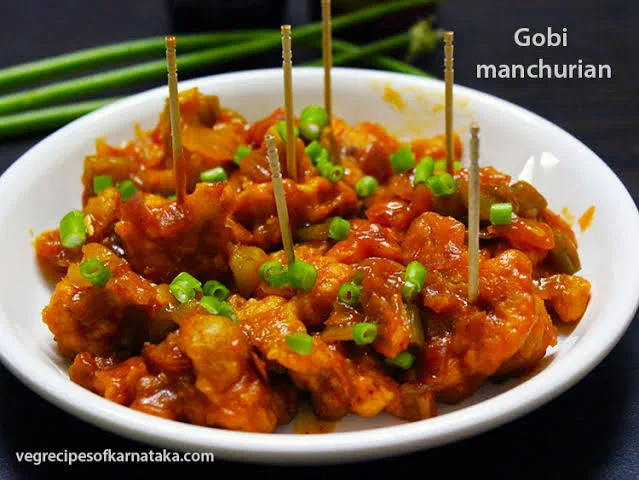Goa’s Mapusa city bans Gobi Manchurian : Know why.

Goa's Mapusa city bans Gobi Manchurian : Know why. (representational Image )
Mapusa, a city in Goa, has taken a bold step by banning the popular dish Gobi Manchurian from stalls and feasts.
This move by the Mapusa Municipal Council is not unique in Goa, as the Food and Drugs Administration (FDA) previously issued instructions to the Mormugao Municipal Council during the Vasco Saptah fair in 2022 to restrict the sale of Gobi Manchurian.
Concerns over synthetic colors and hygiene prompted these actions, leading to raids on stalls by the FDA to curb the prevalence of the dish.
Gobi Manchurian, a fusion dish featuring cauliflower florets coated in a fiery red sauce, has long been cherished by food enthusiasts. However, the clash between local culinary preferences and concerns over hygiene and synthetic colors has put the dish in the spotlight.
This ban is part of a broader cultural debate surrounding the dish’s popularity and its impact on traditional local cuisine.
The roots of Gobi Manchurian can be traced back to its non-vegetarian counterpart, chicken Manchurian. Mumbai’s Chinese culinary pioneer, Nelson Wang, is credited with inventing chicken Manchurian in the 1970s while catering at the Cricket Club of India.
The dish features deep-fried chicken nuggets in a spicy cornflour batter, served either dry or in a tangy gravy made with soy sauce, vinegar, sugar, and occasionally tomato sauce.
Gobi Manchurian emerged as the vegetarian alternative to its chicken counterpart, gaining widespread popularity over the years.
However, the recent bans in Goa highlight the ongoing struggle between maintaining local culinary traditions and embracing globally influenced dishes, raising questions about the future of Gobi Manchurian in the region.









